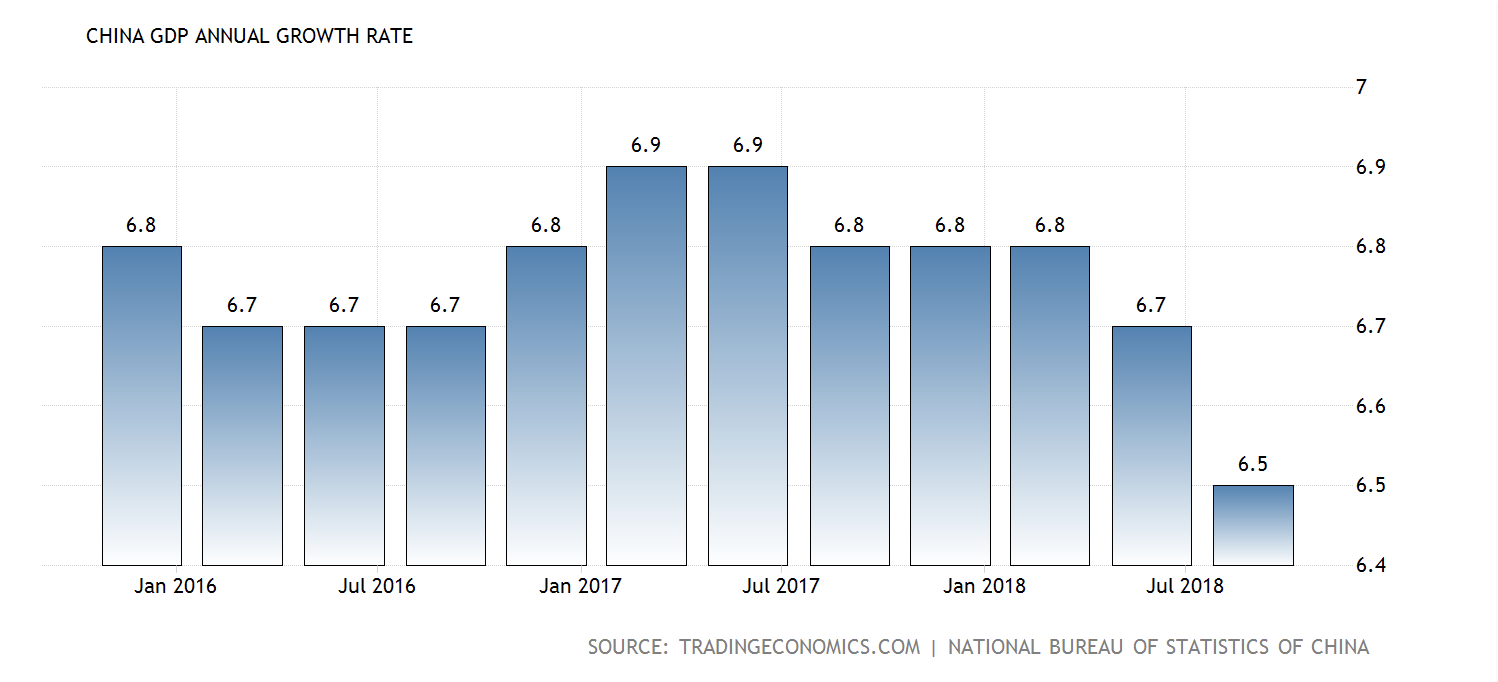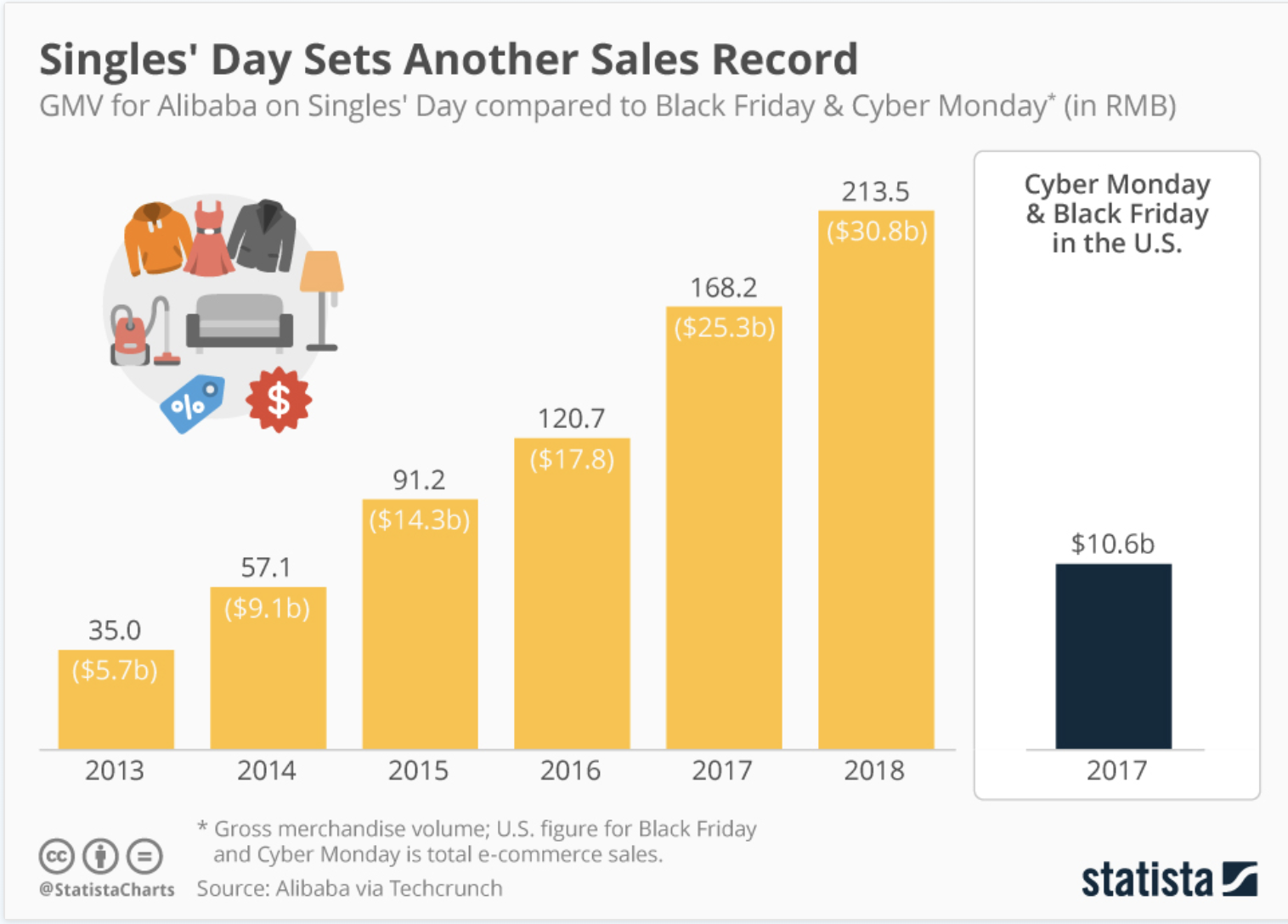China announced a 6.5 percent economic growth rate in the September quarter of 2018, the lowest rate since 2016. However, the decreased economic growth rate didn’t cool down the consumption enthusiasm on e-commerce platforms. Instead, the Chinese e-commerce companies made e-commerce history in November.
China GDP Growth Rate
The most representative e-commerce company would be the giant—Alibaba. This year, Alibaba reported that customers spent $30.8 billion online in 24 hours, a significant increase from $25.3 billion in gross merchandise volume in 2017. The number is almost five times than the total online sales on 2017 Cyber Monday reached $6.59 billion, the largest online sales day in the U.S. history, according to Adobe’s analysis.
Singles Day (Nov.11) was originally created by Chinese university students to celebrate their single status. In 2019, Alibaba created its first shopping day on Singles Day with about $7.1 million in gross merchandise volume and turned it into a nationwide shopping festival. And now it’s the world’s largest online-shopping festival, according to Bloomberg.
Source: Statista
When the creative marketing strategy created by accident has become a profitable business model, Alibaba is not the only company who participates in the festival. While Alibaba calls its shopping festival as “Double 11”, JD.com, the most competitive rivalry of Alibaba, names its shopping festival as “11.11” and extends its sales time from Nov.1 – Nov.11. During the period, JD.com saw about $22.8 billion in transactions, a 25.7 percent increase compared to the gross merchandise volume of the same period in 2017. JD.com also has its own shoppers’ holiday in mid-June (6.18). This year, JD.com has sold $24.7 billion worth of goods on that day.
Plus, other popular local platforms performed well in this Singles Day, for example, Suning, VIP.com, Vmall.com and Kaola.com, all of which are popular e-commerce companies in China.
Based on the whopping numbers, China’s media show their confidence in Chinese customers’ purchasing power. According to people.cn, an authoritative media in China say that the development of shopping festivals over the ten years has shown the increase in China’s economic growth and witnessed the consumption power of domestic economic growth. In the past ten years, the items customer buy online have changed from everyday necessities to high-quality commodities, such as big-screen televisions, smartphones and imported products. Also, an increased number of rural residents are taking part in the shopping festival, for example, the number has reached 241 million in western rural areas, which can show huge potential possibilities for the e-commerce industry. China is welcoming “consumption upgrading”, China’s media say.
However, the opposite points came out that the numbers “ suggest China’s economy is cooling down”, according to Business Insider. Although the gross merchandise volume has been increasing over the past ten years, the GMV annual growth rate is not the case. This year, the GMV annual growth rate of Alibaba has dropped from 39% to 27%. Also, the upstart e-commerce company Pinduoduo, featuring to sell unknown-brand, cheap, low-quality products but low-price products, has won many shoppers in China this year. The phenomenon was heatedly discussed that Chinese people are facing “consumption degrading”.
The 2018 shopping festival in China has come to a close. What is the status quo behind the hilarious shopping carnival? Maybe the consumers can tell.


Leave a Reply
You must be logged in to post a comment.